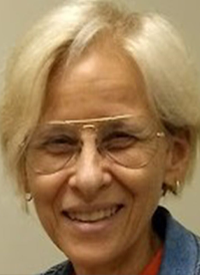Cancer Support Groups of Interest to RNs and Social Workers
Debi Fischer, MSW, BSN, BA, LCSW, RN, walks through some cancer support groups that may be of interest to oncology specialists.
Debi Fischer, MSW, BSN, BA, LCSW, RN

As RNs and social workers who are in the day-to-day reality of the minefield that is cancer, we see the toll that this disease has on the patient population. Support groups give the tools to the patient to cope with this unforgiving illness. These groups can meet in-person, at the hospital in patient unit, or virtually. A look at these programs yielded valuable information that RNs and social workers can pass on to their patients and their family members.
New York Support Groups
New York is home to Memorial Sloan Kettering Cancer Center. Their support groups are run by LCSWs and nurses with expertise and training to help patients and their caregivers adjust to the emotional and physical implications of their disease.1 There are support groups for different cancer types. Classes are also differentiated by where an individual is in their journey. For instance, some classes are geared toward those with newly diagnosed disease, some are designed for patients actively receiving treatment, and some are intended for survivors. There are also special classes for members of the LGBTQ+ community, for example. There are also virtual sessions that are given on a scheduled live basis. These classes cover the gamut from screening for types of cancers, preventive measures, diagnosis, and treatment options.1
These virtual resources are offered at no charge. A look at their website revealed 235 current group offerings including: Bereavement Support for Widowed Parents; Young Adult Workshop: Yoga-Flow & Restore; Spirituality Group; Towards Tomorrow: A Bereavement Support Group for MSK kids Caregivers; and a Brain Tumor Support Group.1
Texas Support Groups
Another hospital that is well known in another part of the country is The University of Texas MD Anderson Center in Houston.2 They offer a wide number of online support groups. They are run by social workers and are virtual in nature. Coping skills are covered during these virtual sessions. There are general cancer support groups that are for patients and caregivers that speak Spanish. Additionally, caregiver and survivor support groups are available. Numerous specialist groups, such as the BEST—Brain Tumor Education and Support group—and LGBTQIA+ Support Group for Patients & Caregivers are provided.2 Another group of interest is the Coping with Breast Surgery & Reconstruction Support Group. This is just a sampling of virtual groups available.
Gilda’s Club
Another well-known staple in the support group community support is Gilda’s Club. It is named after the Saturday Night Live actress and comedian, Gilda Radner, who died from ovarian cancer in 1989 at the age of 42. She was originally diagnosed in 1986. Her husband, the late actor Gene Wilder, and her psychotherapist started this organization after Gilda’s death. Gilda attended the Wellness Community in California when she was originally diagnosed. The first Gilda’s Club was started in 1995 in New York City and now there are over 40 communities throughout the United States. In 2009, Gilda's Club Worldwide and The Wellness Community came together to reemerge as the Cancer Support Community (CSC). There are more than “44 local affiliates, 170 satellite locations, and robust online resources.”3
Gilda’s Club in South Florida, where I am located, does not offer not virtual groups. Sessions are run by licensed mental health providers and meet every week.4 In this way, these groups are different than the ones listed above. They are kept small, between 8 to 10 participants and are not characterized as casual—patients cannot “drop-in.” Rather, patients must go through a process to demonstrate their interest in being in the group and commit to attend as regularly as possible.
The American Cancer Society
Lastly, the American Cancer Society also offers support services for patients with cancer—they cover a wide variety of topics such as spiritual guidance, group settings, cancer education, and support in general.5 Unlike the other organizations highlighted above, they are not limited to a specific geographical location in the United States. They offer both virtual and live sessions. They also offer 1-on-1 sessions with a counselor.
Final Thoughts
This list is just a sampling of what is available nowadays for oncology patient in terms of group support and can guide the RN and social worker when discussing these options with their patients.
References
- All support groups and programs. Memorial Sloan Kettering Cancer Center. Accessed April 24, 2023. https://www.mskcc.org/experience/patient-support/counseling/support-groups-programs
- Cancer support groups. MD Anderson Cancer Center. Accessed April 24, 2023. https://www.mdanderson.org/patients-family/diagnosis-treatment/patient-support/support-groups.html
- About us. Gilda's Club. Accessed April 24, 2023. https://gildasclubsouthflorida.org/about-us/
- Support & Networking groups. Gilda’s Club. Accessed April 24, 2023.
https://gildasclubsouthflorida.org/our-programs/support-and-networking-groups/ - Psychosocial support options for people with cancer. American Cancer Society. September 3, 2020. Accessed April 24, 2023. https://www.cancer.org/cancer/survivorship/coping/understanding-psychosocial-support-services.html
Latest Conference Coverage
2 Commerce Drive
Cranbury, NJ 08512
All rights reserved.



